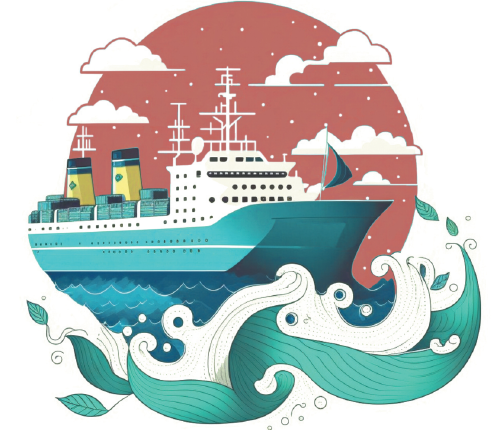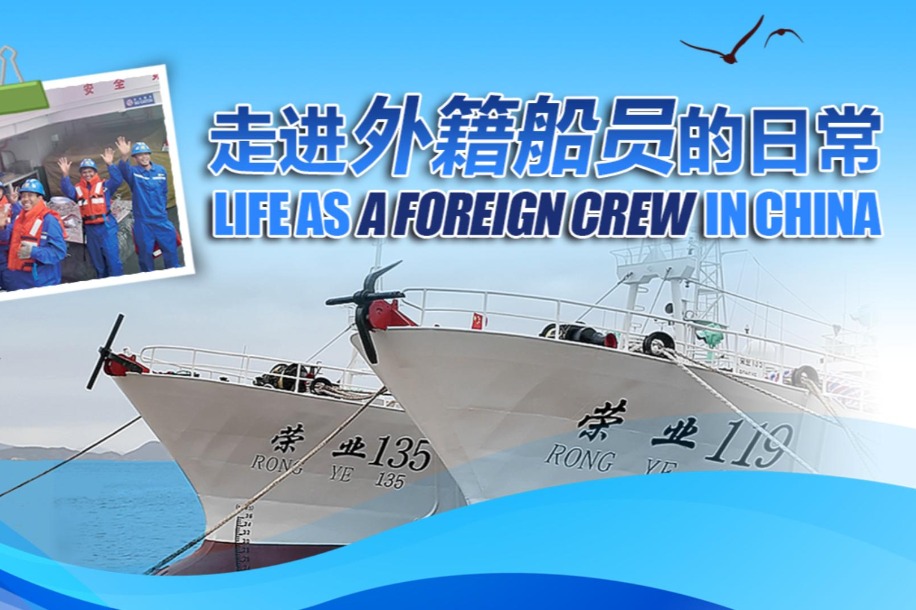With the wind in its sails
Incentivizing shipowners to adopt zero-carbon fuels can accelerate the shipping industry's decarbonization

Incentivizing shipowners to adopt zero-carbon fuels can accelerate the shipping industry's decarbonization

China is one of the key players in the important negotiations to decarbonize the global shipping industry, which are currently taking place at the United Nations International Maritime Organization. China has proposed that shipping should achieve "net zero" carbon dioxide emissions by the middle of the century, consistent with its own commitment to achieve a similar goal for the Chinese economy before 2060.
In 2022, working hand in hand with other countries, such as Brazil and the United Arab Emirates, China also came forward with a proposal at the IMO for an International Maritime Sustainability Fund and Reward mechanism to expedite the transition to low and zero-carbon fuels.
As China has made clear, shipping is not immune to the huge challenge that a rapid transition to zero-carbon fuels and technologies represents. But there is now increasing clarity about what needs to be done. International collaboration is going to be key.
Taking forward ideas originally put forward by China, the International Chamber of Shipping (ICS), whose membership includes the China Shipowners' Association, has recently submitted a comprehensive fund and reward proposal to the IMO, affirming the shipping industry's commitment to meet a mid-century goal for phasing-out of CO2 emissions.
International shipping transports about 90 percent of the world trade in goods, including most of China's exports and imports, but it contributes about 3 percent of the global economy's CO2 emissions. As recognized by the Chinese government, shipping is the most sustainable way to transport goods, energy and raw materials, and the global fleet has reduced its carbon intensity by more than 30 percent in the past 15 years. But the shipping industry needs to catalyze a massive further reduction in its emissions.
If shipping is to decarbonize completely by the middle part of this century, the world has one of two choices: Governments can either cooperate to ensure that shipping can rapidly accelerate the uptake of low and zero-carbon fuels; or governments can decide to reduce shipping's emissions by rationing the supply of maritime transport, with very serious implications for world trade and global prosperity, which — as rightly made clear by China at UN IMO meetings — is unlikely to be acceptable.
For shipping to achieve zero emissions by the mid-century, it needs to reach a "takeoff" point by 2030 and be on a pathway to complete decarbonization as soon as possible. The phase-out of emissions therefore requires the accelerated uptake of alternative marine fuels such as methanol, ammonia, hydrogen, sustainable biofuels and new synthetic fuels. But the scale of this challenge should not be underestimated; the current availability of zero-carbon marine fuels is virtually zero, except for a few experimental projects. Moreover, the cost of these new fuels is expected to be at least two or three times the cost of the fuel oil which most ships use today, and access to these fuels will need to be prioritized over land-based uses.
Building on ideas proposed by China, the shipping industry therefore supports a global economic measure, to be agreed by the IMO, to narrow the significant "cost gap" with conventional fuels and incentivize first movers with rewards for CO2 emissions prevented by the use of alternative fuels, plus new technologies including carbon capture. Although there are different views about some of the details of how such a global mechanism might work, the latest industry proposal has benefited from informal consultations between the ICS and the Chinese government.
The ICS version of China's fund and reward proposal would be financed by a mandatory contribution by ships per tonne of CO2 emitted to a global fund.
The fund would be used to reward the uptake of alternative fuels by first movers, which will significantly reduce the cost gap while minimizing the additional cost of marine fuel to ensure that there will not be proportionately negative impacts on trade, which is a legitimate concern among many developing economies that has been clearly articulated by China.
In response to this concern, the ICS commissioned an economic impact assessment of the proposal, which concluded that contributions by ships of up to $150 or more per tonne of fuel consumed would be unlikely to have significant trade impacts.
The industry's version of a fund and reward mechanism is intended to be as simple as possible. While China still has a number of questions about some of the details, approval of such a mechanism by the IMO is vital if the global shipping sector's commitment to phase out emissions by the middle of the century is to remain plausible, given the truly enormous challenge required to transition to a zero-carbon future.
Simon Bennett is deputy secretary-general at the International Chamber of Shipping. Edward Liu is principal representative at the International Chamber of Shipping (China) Liaison Office. The authors contributed this article to China Watch, a think tank powered by China Daily. The views do not necessarily reflect those of China Daily.
Contact the editor at editor@chinawatch.cn.

































